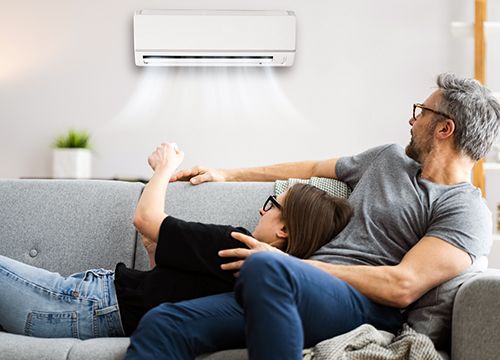The Pros and Cons of Ductless HVAC Systems
If you’ve been thinking about upgrading your home’s heating and cooling, ductless HVAC systems might have caught your eye. They’re becoming a popular choice for good reason – offering an efficient and flexible way to keep your home comfortable year-round. But like any system, it’s important to know the upsides and potential drawbacks before making a decision. Let’s take a closer look at what makes ductless HVAC systems a great option, and where they might not be the perfect fit.
Pros of Ductless HVAC Systems
- Energy efficiency: Ductless systems are highly energy efficient. Traditional systems can lose up to 30% of energy through ductwork, but with no ducts, mini-splits avoid this loss. This makes them a great option for homeowners looking to lower their energy bills and reduce their carbon footprint.
- Flexible zoning: Ductless HVAC systems shine when it comes to personalized climate control. With the ability to set different temperatures for each room, you can heat or cool only the spaces you’re using. This tailored approach not only maximizes comfort but also helps reduce energy consumption by avoiding unnecessary heating or cooling in unoccupied areas.
- Easy installation: Unlike traditional HVAC systems, ductless units are easier and faster to install since they don’t require extensive ductwork. This can result in lower installation costs and less disruption to your home during the process.
- Improved air quality: Without ducts to collect dust, allergens, and other particles, ductless systems can improve indoor air quality. Many units also come equipped with advanced filtration systems to help purify the air further, which is beneficial for households with allergies or respiratory concerns.
- Space-saving design: Ductless HVAC units are compact and don’t take up much space. This is especially beneficial in smaller homes or areas where traditional HVAC systems would be impractical. The indoor units are typically mounted on walls and don’t interfere with the design of your space.
Cons of Ductless HVAC Systems
- Higher upfront costs: While ductless systems are efficient and save money in the long run, the initial cost can be higher than traditional HVAC systems. The cost of purchasing multiple indoor units can add up, especially if you’re looking to provide cooling and heating for several rooms.
- Aesthetic impact: Some homeowners may not like the appearance of the indoor units. Since they’re mounted on walls, ductless systems can be more noticeable compared to traditional systems that have vents discreetly placed around the home.
- Maintenance requirements: Ductless HVAC systems require regular maintenance to ensure optimal performance. This includes cleaning filters and checking for refrigerant leaks. While this isn’t necessarily a disadvantage, it’s important to stay on top of these tasks to avoid performance issues.
- Limited range for larger homes: For larger homes, a ductless system may not be as effective at providing uniform heating or cooling. While they work well in smaller spaces or for zoned heating and cooling, larger homes may need several units, which can increase the overall cost and complexity of the system.
Is a Ductless HVAC System Right for You?
Ductless HVAC systems offer energy efficiency, flexibility, and improved air quality, making them an attractive option for many homeowners. However, the higher upfront cost and ongoing maintenance may make them less appealing to others. If you’re looking for a space-saving, efficient solution for specific areas of your home, a ductless system could be a great fit. However, for larger homes or those concerned about aesthetics, it’s important to consider all options before making a decision.
Ready to experience the comfort and efficiency of a ductless HVAC system? Contact Comfort Solutions HVAC today for a personalized consultation and discover the best solution for your home’s heating and cooling needs. Let us help you make the right choice!

Recent Posts

Zoned Heating Systems – What Are They? What Are the Advantages?

The Impact of Furnace Size on Efficiency and Comfort

How to Reduce Your Heating Bills this Winter

The Benefits of Seasonal HVAC Inspections
